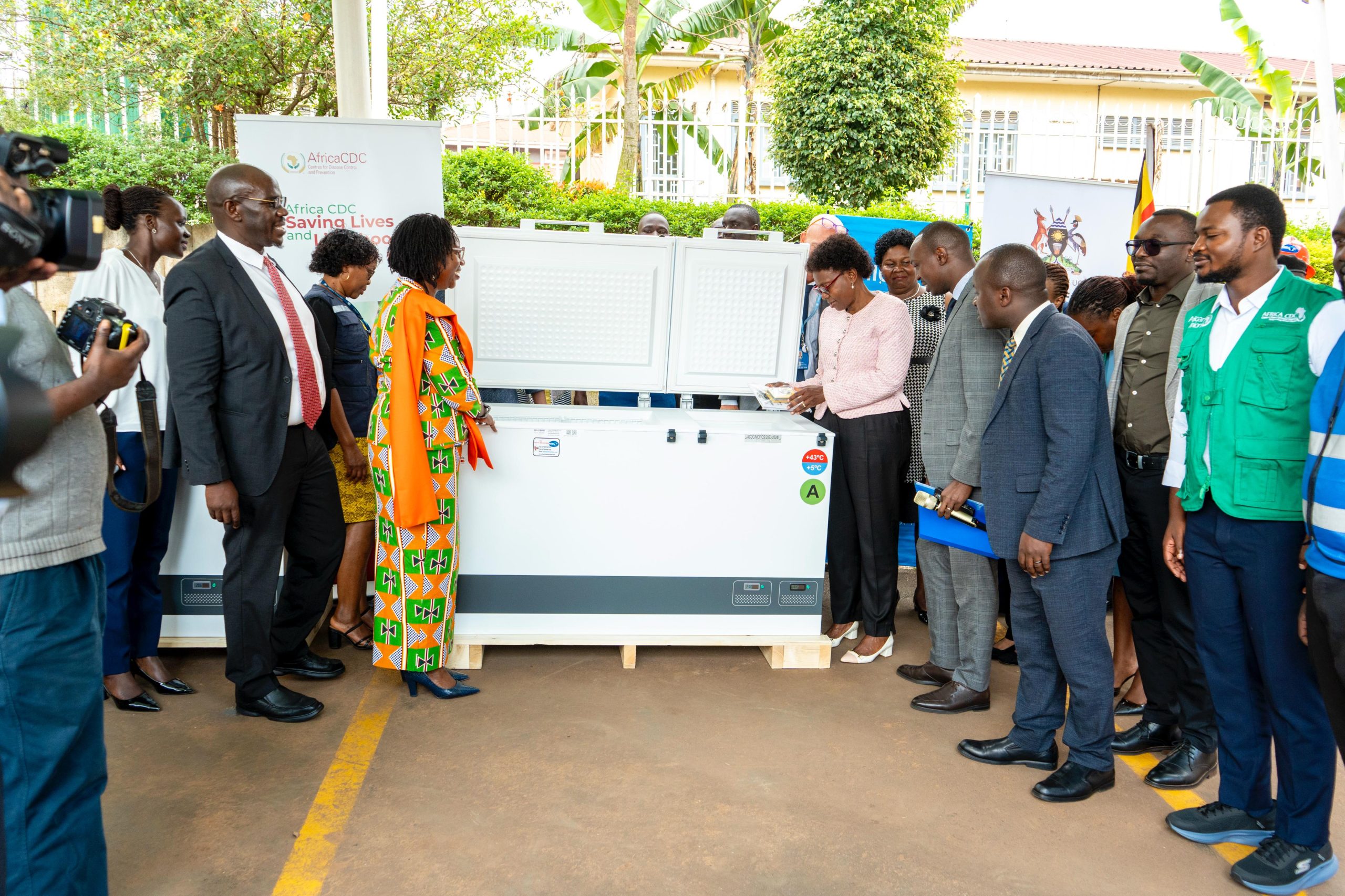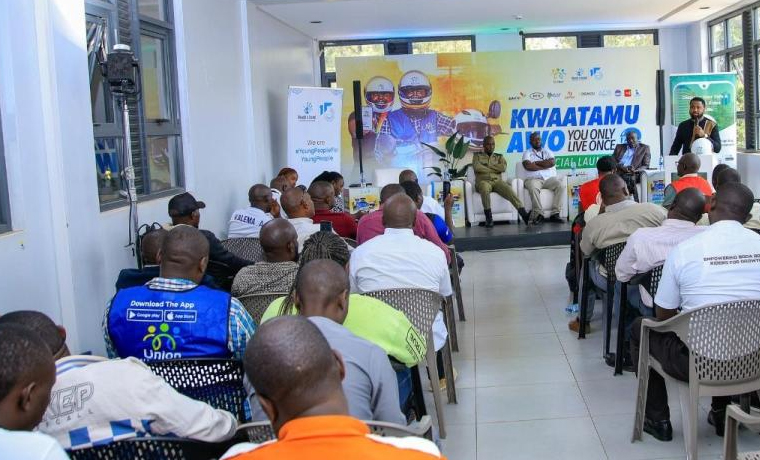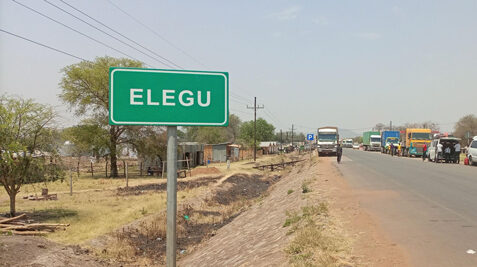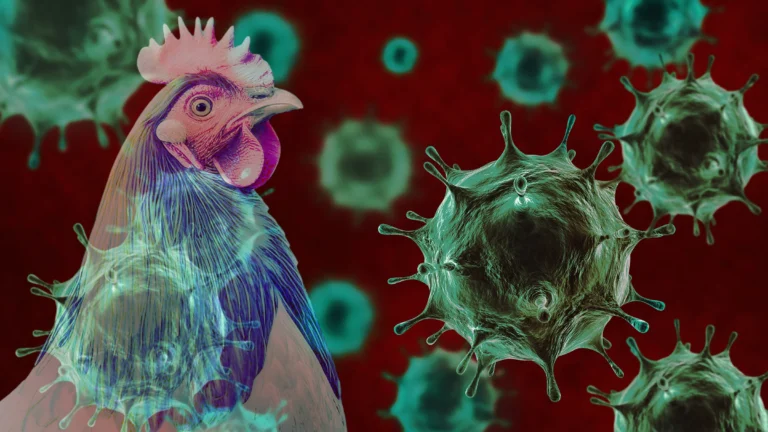Uganda has taken a significant step in strengthening its immunization programme with the delivery of 500 Solar Direct Drive (SDD) vaccine refrigerators, supplied by UNICEF with support from the Mastercard Foundation through Africa CDC. These units will be installed in health facilities nationwide, boosting vaccine storage capacity, especially in hard-to-reach and off-grid communities.
Presiding over the handover, Minister of Health Dr. Jane Ruth Aceng Ocero emphasized the transformative impact of the initiative.
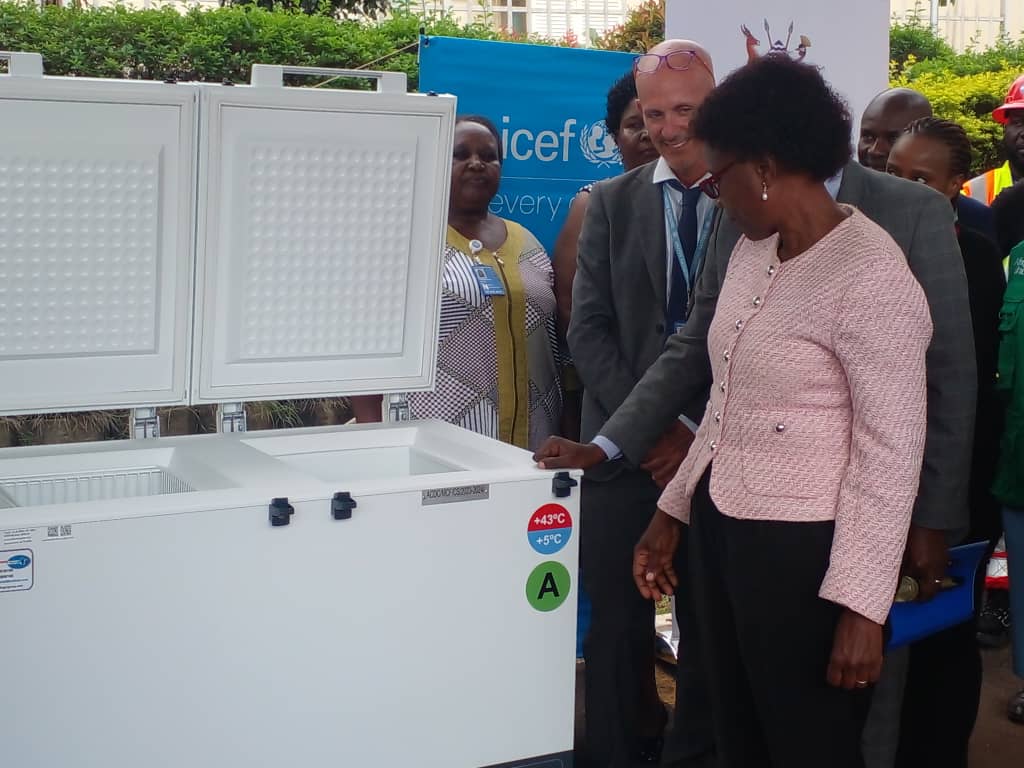
“These solar-powered refrigerators will greatly expand our vaccine storage capacity at both district and health facility levels. With uninterrupted cold storage powered by solar energy, even in areas without reliable electricity, we will reduce vaccine wastage and increase immunization coverage,” she said.
The new equipment will support the safe storage and delivery of life-saving vaccines, including those for children under five and other vulnerable groups, ensuring communities in remote areas receive timely immunization services.
Dr. Yaron Wolman, UNICEF’s Chief of Child Health and Survival, highlighted the role of cold chain innovations in health equity.
“Reliable vaccine refrigeration is essential for consistent vaccine availability, especially in areas where electricity supply is unreliable. This initiative will safeguard children’s health and strengthen community immunity,” he noted.
Speaking on behalf of WHO Uganda, Mr. Andrew Bakainaga reiterated WHO’s commitment to Uganda’s immunization goals.
“A strong cold chain is the backbone of any immunization programme. This investment bridges service delivery gaps in underserved regions and ensures every child can access potent, life-saving vaccines,” he stated.
Africa CDC Eastern Africa Regional Director, Dr. Mazyanga Lucy Mazaba, stressed that cold chain systems are often the unsung heroes of public health.
“Vaccines are only effective if stored and transported correctly. The true measure of success is not in the number of units delivered, but in the lives saved, outbreaks prevented, and the trust communities have in their health services,” she said.
Cold chain infrastructure is a critical foundation for resilient immunization systems, requiring sustainable equipment and a skilled workforce for maintenance and operation. With this investment, Uganda moves closer to its goal of universal vaccine access, ensuring that every child—no matter where they live—receives safe and effective immunization.
Source : Ministry of health

